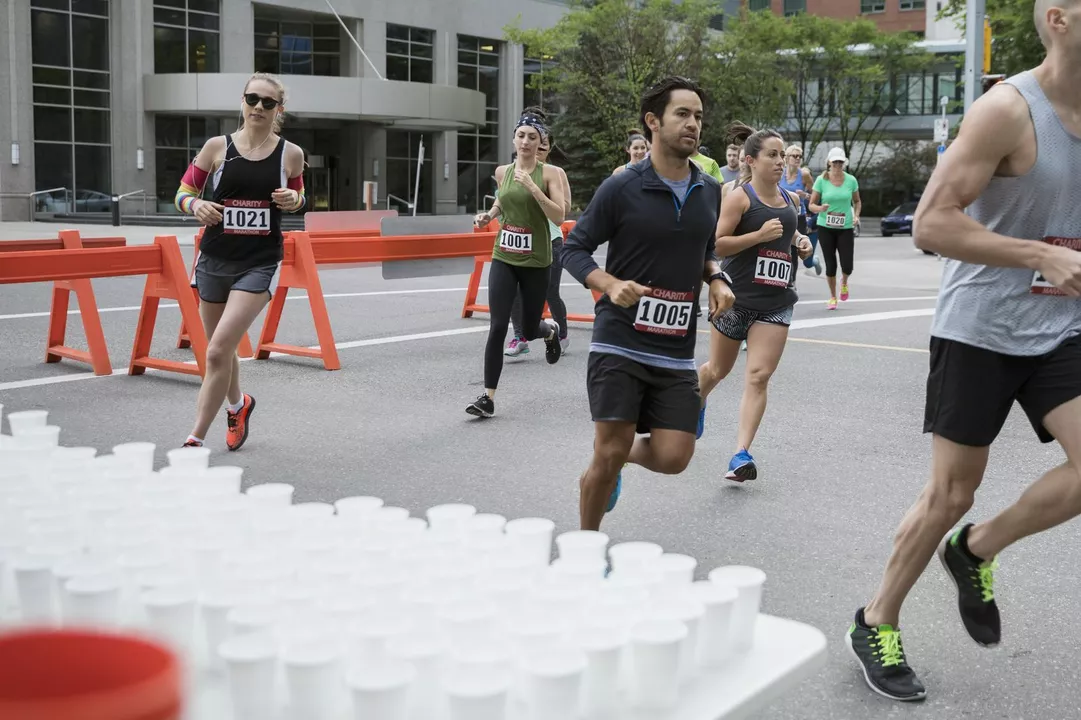Nutrition for Sports Performance
When it comes to Nutrition, the practice of giving your body the right foods and fluids to support activity and health. Also known as diet, it directly impacts how well you run, kick, or swim.
Good Performance, the level of output you achieve in a sport relies on three pillars: fuel, timing, and balance. Nutrition provides the fuel; proper timing ensures the fuel is available when you need it; balance keeps you from over‑ or under‑eating. This trio enables athletes to push harder without crashing.
Why nutrition matters across sports
Running, soccer and swimming all tax the body in different ways, but they share common needs. Carbohydrate stores act as the primary engine for a 5‑km run, a 90‑minute soccer match, and an intense swim set. Protein helps repair muscle fibers after each session, while healthy fats support joint health and long‑term energy. When you match the right food type to the activity, you see faster Recovery, the process of restoring muscles, glycogen and overall readiness and lower injury risk.
Think of it this way: a runner who eats a banana and a handful of nuts before a jog gets steady glucose, while a soccer player who drinks a sports drink with electrolytes maintains hydration and muscle function. A swimmer who includes a post‑workout shake with whey protein supports muscle repair. These examples form clear semantic triples: "Nutrition fuels performance," "Performance requires proper hydration," and "Hydration aids recovery."
Hydration is often the overlooked sibling of nutrition. Even a 2% loss in body water can shave seconds off a sprint or cause cramping in a match. Water, combined with electrolytes like sodium and potassium, restores fluid balance and supports nerve signals. For endurance athletes, sipping a low‑sugar sports drink every 15‑20 minutes helps keep the brain sharp and the muscles firing.
Macronutrient ratios don't have to be the same for every sport. Runners usually benefit from a 60‑70% carbohydrate, 15‑20% protein, 10‑15% fat split. Soccer players, who need both endurance and quick bursts, might aim for 55% carbs, 20% protein, 25% fat. Swimmers, especially those covering long distances, often need a slightly higher fat intake for sustained energy. Adjusting these ratios influences how quickly glycogen replenishes after training, which in turn affects the next session’s quality.
Timing your meals matters just as much as what you eat. A pre‑exercise snack 30‑60 minutes before activity—think a piece of toast with honey or a small yogurt—gives a quick energy boost. During longer sessions, a mix of carbs and electrolytes—like an energy gel or a banana with a pinch of salt—keeps blood sugar stable. Post‑exercise, aim for a 3:1 carb‑to‑protein ratio within 30 minutes; this combo jumps glycogen stores and jump‑starts muscle repair.
Supplements can fill gaps but aren’t a magic fix. Creatine helps short‑burst sports like soccer, while beetroot juice can improve oxygen use for runners. Omega‑3 fish oils support joint health for swimmers who do a lot of shoulder work. Use them wisely and always pair them with solid food choices.
Beyond the plate, sleep and stress management round out the nutrition picture. Poor sleep reduces insulin sensitivity, making carbs harder to use, while chronic stress spikes cortisol, which can break down muscle tissue. A balanced diet paired with good rest creates a feedback loop: better nutrition leads to better sleep, and better sleep improves nutrient utilization.
Now that you see how nutrition, performance, recovery, and hydration intertwine, you’ll notice patterns across the articles below. Whether you’re looking for a quick pre‑run snack idea, a hydration plan for a hot soccer match, or a recovery smoothie for after a swim, this collection has you covered.
Ready to dive into the tips, tricks, and science that can upgrade your game? Scroll down and explore the range of advice tailored for runners, soccer players, and swimmers alike.
